This teaching is part of the common thread that runs through all wisdom teachings. Here, I explore the reasons why.
1. Because we don’t have access to the Akashic records. The universal perspective is not always revealed or in accordance with our clock, our limited perspective or our expectations. Life and its workings are too vast.
Case Study. Consider the old story of the Taoist farmer whose horse runs away. His neighbor is quick to come and appraise the situation: “What bad luck!” he declares. The farmer just shrugs his shoulders. When the horse comes back with another horse, the neighbor comes again: “What good luck!” The farmer just shrugs. When the farmer’s son tries to saddle the newly acquired, wild horse and breaks his leg in the process, the neighbor comes again: “what bad luck.” The farmer shrugs. Finally, when the army comes, ready to haul the kid off to a bloody war, they take one look at his broken leg and decide to leave him behind. “What good luck! Your son sure picked a good time to break his leg!” the neighbor proclaims.
A broken leg is generally not seen as a “good” thing, but in this case, it saved the kid’s life.
The farmer was too wise to get involved with these assessments. He knows he doesn’t know what’s good or bad in the big picture. He is able to let it unfold and is willing to honor the process. This takes wisdom, humility and courage. Wisdom to know we don’t know. Humility to yield to the unknown and courage to be fine with it, regardless of the outcome.
It’s a willingness to live in trust, rather than in fear.
2. Because everyone has lessons to extract from each and every event that appears in their lives. And as my teacher often puts it, the messenger will keep coming back until the message has been delivered. Everyone has their karma (which doesn’t mean punishment).
3. Because, by judging, you now take the karma. (Doubly: for interfering and because you have demonstrated need for the lesson and compassion for that perspective.)
4. Because the judging is more a statement about you, than the object of your criticism. Our reality is shaped and limited by our thoughts and experiences, meaning, our perceptions provide us with a very limited viewpoint. This means, further, that it’s guaranteed we don’t have the whole story. Only at the end of time can we make over-all assessments. Who will be here? This is why the wise know better than to speak.
Those who say don’t know and those who know don’t say ~Tao Te Ching
But in the guise of “being concerned,” we speculate, condemn and as Zen author Karen Maezen Miller is wont to say, we run commentary. The base assumption is that the other—even when (especially when) the other is a family member—needs our concern. That energy could be better directed inwardly, toward our own needed improvements, for we are all a work in progress.
If you have reached a state of human perfection and have no need for continued work and improvements…Congratulations! Your work here on earth is complete.
Here is an example that both highlights the absurdity of making judgements about others and at the same time, illustrates the workings of truly turning the pointer to the inside, rather than toward others:
Case Study. Your aunt tells you your wife needs to dress differently because her way of dressing, she feels, will influence her daughter to dress in a way that solicits male attention and fosters promiscuity.
But, in your reflections, you note that when it comes to alcoholic beverages, your aunt tends to serve herself generously, sometimes to the point of excess. If we look from a wider lens, and follow her own logic to the end, we see that this, too, might be setting an undesirable example—it may foster alcoholism, or at the very least, irresponsible drinking in her children. Of course, the whole thing is absurd and endless, for, everybody has “stuff.”
I have a dear friend who now avoids a member of her own family for habitually starting sentences with “You need to…” As we become more conscious, we also become more aware of how often our words express this kind of judgmental attitude toward others.
Here’s what it boils down to:
❖ Everybody is a mixed bag, with aspects that we might label as “good” and others as “bad.” And everybody has a history, complete with skeletons and dregs of many varieties. Acceptance of people as evolving entities, like ourselves, fosters better relations.
❖ We are shaped by countless influences, from our Zodiac sign, to our favorite TV show growing up, to our first kiss, our first best friend, our first broken heart, to more obvious, genetic and social factors. Meaning, we are a confluence of infinite influence.
❖ We don’t know how others will perceive us (The young girl in my example will probably only see the good in her aunt. As in The Little Prince, only adults discriminate. Children see through, to the heart of a person.)
ACCEPTANCE; Life in the balance – accept it all. Nothing is good or bad but thinking makes it so. It is the nature of the universe to establish balance; thus, trying to prevent perceived bad will also block desired good. Instead, welcome challenge and difficulty, enjoying the indicated activity, and growing in each situation.” ~Guru Rattana

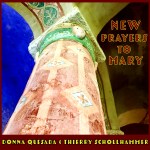

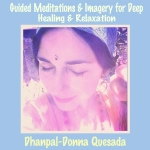
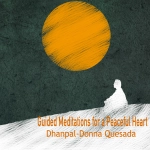
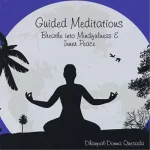
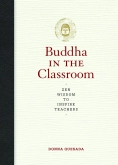


Really fine and useful statement on the subject. I see judgment as a driving to conclusion that narrows my mind and excludes whatever doesn’t fit the judgment. That goes against my yoga practice where I want to broaden and deepen my consideration. And I want to keep judgment distinct from discernment, which I believe benefits from openness. Excellent post. I’m going to use this. Thank you.
Hi Donna!
Happy New Year to you!
I really enjoyed this post, especially since it features my favourite story of the Taoist farmer.
That’s what I like about shikantaza zazen – the dropping of all judgements about good or bad, beautiful or ugly, etc. Just be and letting things be.
Gassho,
Timo
Seeing the limits of knowledge was also what did it for me, many years ago. My spouse knew me back then, and still remarks on what a big change happened when I stopped believing that I really, actually, completely knew, and started to live from provisional knowing.
A spaciousness, an allowing for possibilities comes into relating with others that flows much easier than trying to nail everyone’s foot to the floor, thought-wise. What a relief !
Thanks for a great post on a topic that needs great posts !
Dominic
Thank you for taking the time to tell me. I appreciate knowing.. And it touches my heart to know my writings are serving, inspiring or uplifting, in some way, or at the very least, giving cause for reflection! ~DQ